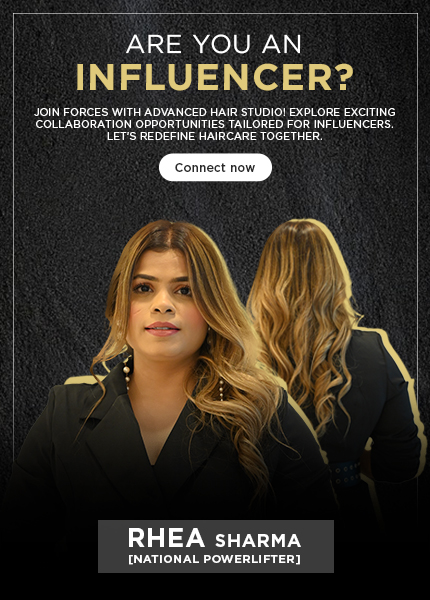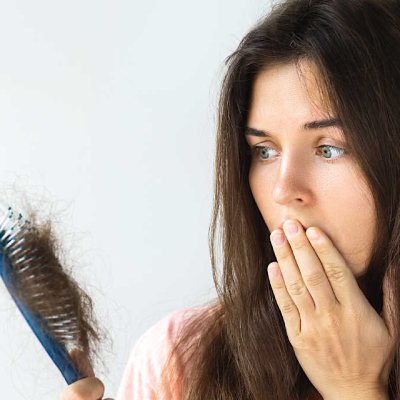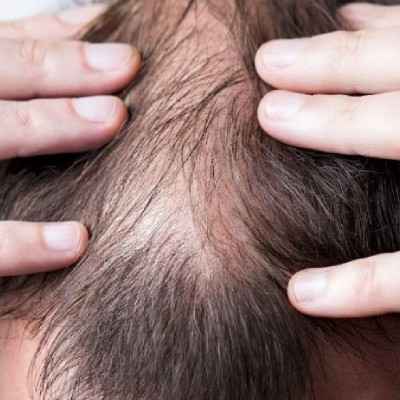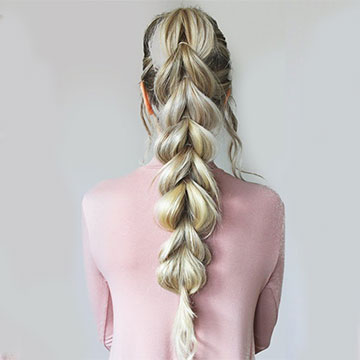5 Bad Hair Care Habits You Need to Stop Right Now

27 May 2022

Hair Experts @ AHS

Bad hair days are a big disappointment, especially when you have an event to attend or are looking forward to a social engagement. Moreover, bad hair hampers your mood and makes you feel less confident. And, when your hair is healthy and in good shape, you undoubtedly feel good about yourself. However, the problem is your hair strands are prone to hair damage, such as thinning, dullness, dryness, frizz, breakage and more.
Bad hair days are a big disappointment, especially when you have an event to attend or are looking forward to a social engagement. Moreover, bad hair hampers your mood and makes you feel less confident. And, when your hair is healthy and in good shape, you undoubtedly feel good about yourself. However, the problem is your hair strands are prone to hair damage, such as thinning, dullness, dryness, frizz, breakage and more. These hair problems are more common in summers. Follow proper summer hair care tips to keep your hair in good condition.
Taking some time to strengthen your hair and keep them looking shiny requires commitment. It's easier to keep hair in its best condition with small alterations to your routine and using the right hair care products.
But before knowing the hair care tips, it is essential to know the bad hair care habits that are damaging to hair in summers. Hence, you can agreeably understand things that you should keep away from your summer hair care routine.
5 Bad Hair Care Habits that Damage Hair in Summers
Here are the five bad hair care habits that you need to avoid to prevent your mane from being damaged:
1. Washing Hair Every Day
It is a big misconception that you need to wash your hair every day to keep them in the best condition. But cleaning hair frequently can have a damaging effect on your tresses.
Shampooing and conditioning hair every day can wash out the natural hair oils. It can make your hair appear dry, frizzy and broken at its tips. It may even dry out the scalp while leading to unwanted dandruff.
Here, we suggest you follow this summer hair care routine:
- Day 1: Shampoo your hair
- Day 2: Don’t wet your hair
- Day 3: Only Condition your hair
- Day 4: Again, avoid washing your hair and then start the whole process again
It is a healthy hair care cycle to retain hair’s lost natural oils. With this hair care routine, you will also notice your hair beginning to shine and appearing more vibrant.
2. Washing Hair with Hot Water
Everyone enjoys a hot shower after a long day. But it is not good for hair. Extra hot showers have the same impact on hair as hot tools. It is because extreme steam and heat can strip off the essential oils from hair. It also leaves traces vulnerable to further damage.
According to hair specialists, one must take lukewarm showers to allow hair follicles to open up and clean themselves naturally. But after conditioning, it is important to rinse hair with cold water. Coldwater ensures that follicles close again to prevent the risk of forming ingrown hair or to avoid irritation on the scalp.
3. Conditioning the Hair Roots
When you condition hair, it is vital to avoid hair roots. Hair conditioners are usually heavy and thick, so these hair care products can lead to blockage in the scalp pores. It means you are prone to damaged follicles, ingrown hair and excess oil.
One rule to follow is to apply conditioner to the hair below your ears. Generally, hair closer to the scalp is already well hydrated. But hair closer to the ends is dryer, so it is best to apply conditioner to the ends.
4. Roughly Drying Hair with a Towel
Using a towel for hair drying is very common. After all, we all love the fresh feel of coming out of the shower with hair tied up in a towel. But in reality, towel hair drying is very harmful to hair. When you roughly use a towel to dry your hair, it results in breakage, damage and hair loss.
It is because your hair is elastic when wet. It means that hair is weak enough to break easily if not handled well. The next time you enter a shower, it is best to use a cotton T-shirt or microfiber cloth or hair wrap to dry your hair. The T-shirt hair drying technique is great for people with curly hair. You need to place your hair within the t-shirt and tie it up as you do with a bath towel. After that, let your hair air dry instead of using a hairdryer. This way, you won’t cause any unwanted damage to your hair.
5. Not Protecting Hair While Using Hot Tools
While using hot hair tools, you need to use a proper heat protectant. High temperatures can automatically make your hair strands dry out and split. Your hair will likely endure long-term damage with noticeable dullness without using one.
Using a hair protectant will form a barrier to prevent hair from heat damage. But you need to know that all heat protectants don’t offer the same result. So, you need to do proper research to find out the right primer spray, blow-dry balm or other options to fit your hair type.
Tips to Take Care of Hair in Summer Heat

Here are some hair care tips to follow to protect your hair from the summer heat:
1. Protect Hair from the Harsh Rays of the Sun
The intense sun rays (including UVA and UVB rays) can damage your hair. They can also damage your hair, leading to the loss of important hair vitamins and proteins. Therefore, it is important to protect your hair from sun damage by wearing caps, scarves, hats or hair thermal protectors.
2. Condition Hair with Proper Care
Unless your hair is very long, use one conditioner pump to nourish your hair. You need to apply conditioner to the mid-shaft and then to the ends of the hair. If you want your scalp to get hydration, use a leave-in conditioner. This technique is also great if you often use dry shampoo on hair. This is how you can prevent scalp drying.
3. Apply the Right Hair Masks
For keeping hair strands well-hydrated, you need to use deep conditioning and a moisturising hair mask once a week. You need to apply hair masks more frequently if you often use hot hair tools. This will give your hair the much-needed shine and softness without weighing down your hair.
4. Choose Hair Care Products with the Right Ingredients
You can find endless hair care products in a store. But which one do you choose? You need to look for the hair strengthening ingredients to ensure your strands get the much-needed nourishment. It is best to choose Argan oil, coconut oil, aloe, or spirulina products. These ingredients are likely to improve the appearance and condition of your hair.
5. Eat a Well-balanced Diet
You need to eat right to improve your hair quality. Since your hair is made of protein, you need to have a protein-rich diet to enhance hair health. So, consider adding these things to your diet:
- Meat
- Fish
- Beans
- Eggs
Other food sources to improve hair health are avocados, spinach and berries. Also, include fruits with vitamin E and vitamin C content to increase collagen production.
6. Tying the Hair
People with long hair know how uncomfortable they feel in the summertime. That’s why it is important to tie up your hair. You can choose accessories that are not damaging to hair strands. For instance, use a silk scrunchie or silk scarf to ensure your precious hair doesn’t break.
7. Be Careful at the Beach or in the Pool
When your hair is wet, it soaks up just like a sponge. For instance, seawater has salt to eliminate hydration and essential oils from hair. Even swimming pools are not good for hair due to the presence of chlorine, which leaves hair dry and brittle due to its low pH level. Whether you are in a sea or pool, make sure your hair is already moistened with fresh water before you dip. You can even apply moisturising creams on hair to protect them from sea and pool water.
8. Maintain Hair Hydration with Natural Ingredients
It is important to maintain hair hydration by using home-based ingredients like curd, eggs or Aloe Vera. All these natural ingredients hydrate hair and scalp. So, consider applying them once a week to your hair and scalp. Keep them on for up to 30 minutes to one hour, and then wash with a mild shampoo.
9. Sleep on Silk
Use a silk alternative instead of sleeping on cotton pillowcases that are harsh to your hair strands. A silk pillowcase is great for protecting hair cuticles by decreasing friction between the fabric and hair.
Another secret to decreasing stress on hair strands is to keep hair in a loose topknot while sleeping. To protect your hair texture, you can use a silk scrunchie or tie them in a low loose braid. When tied, your hair is in one place and less prone to breakage.
10. After-bath Care
After cleaning your hair properly, it’s time to take care of it. First, use a gentle microfiber wrap to tie your wet hair. After that, gently press it on your hair to remove excess water. Don’t rub wet hair with a towel and let them air-dry instead of using a hair dryer for drying.
When combing, use wooden combs to ensure less hair breakage. After that, apply a hair serum to keep your hair hydrated and protected from environmental damage. This simple after-bath care routine for hair is great for keeping your tresses in good condition.
Conclusion
Have you noticed damaging signs on hair due to soaring summer heat? Or are you still following the bad hair habits as discussed in the article? If so, you need to use the given hair care tips to keep your hair healthy in summer. But if these tips also don’t work for you, make sure to see a certified dermatologist or a trichologist or a qualified hair expert for proper hair care treatment. The hair specialist will guide you with a suitable hair treatment to improve your hair condition.
Stay Updated
Subscribe to our email newsletter for helpful tips and valuable resourses
Be an influencer
Join forces with Advanced Hair Studio! Explore exciting collaboration opportunities tailored for influencers. Let's redefine haircare together.
Connect now












